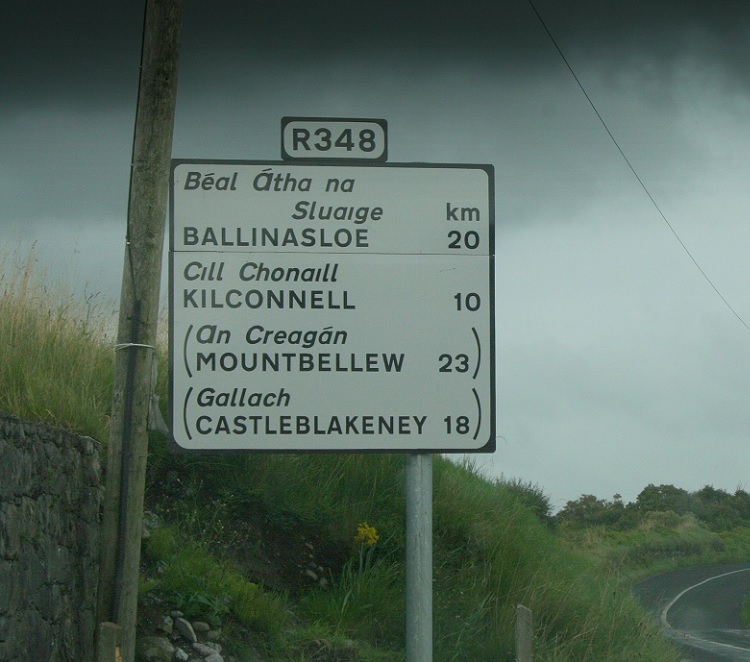Out Here | 3 | Market Tuesday in East Galway
Once the market would have packed the square of this small town in East Galway. And its patrons would have spilled out of the pubs, spouting cigarette-smoke and shit-talk to the sky. Then this was a big town. Now the market is a man selling vegetables out of a van and another selling whatever odds and ends he can get his hands on.
The rest of the world grew: Dublin and Galway crept inland from the coasts, the siren’s songs of England and America called the people away. And this town was whittled down to the knot of little battles and achievements that make up all rural towns. So today it dangles between being a crossroad-village, where many roads and travellers meet, and being forgotten.
When the Celtic Tiger left it took the meat from this town’s bones. As it did with countless others dotted around Ireland’s countryside. You see their blank windows staring out into the streets as you drive through. Alongside the open doors of the pubs that soldier onwards on the backs of their regulars. Who kept on drinking there as other generations came and went. I walk past one bar out here, on this square in East Galway, and get the smell of beer and last night’s cigarettes. This is a town that the present has left behind. The plans and schemes and developments of the 21st century have passed it out. Leaving events like this Tuesday market to jolt whatever life they can into its limbs. Money is funnelled into the cities as if they were hooked up to cash-flow IV drips. While these small towns are left to fight it out. To reach deep into their people’s pockets for whatever bread they can scrape together.
Every town out here has a church, a national school, and a pub. With only a fistful of people to keep them open. There are villages within half an hour’s drive of here that are standing on one shaky leg each. A limb supported by the few unwavering locals who have not been totally swayed by the temptations of the world beyond their towns. Who have not only allowed the present to outrun them, but have ceased trying to catch it. They are fixed – rooted to their ways and their barstools. Where they have been for countless generations.
Rural Ireland has never seen a punch it would rather dodge than take. It ploughs on – head down and eyes narrowed – around the hamster-wheel it has walked for ages. As the years and opportunities rolled past, it ploughed its fields by day and filled its barrooms by night. Clinging to its life with dogged determination. Even as, bit by bit, that life fades away. It is not a way that suits the young and ambitious. True there are some who want to dig that trench. But the majority get their leaving certificates in this town’s old convent-school and take off for the universities. Leaving the country to its worn-out ways.

But the cities that adopt the country’s sons and daughters require their own sacrifices. The people live stacked on top of each other, with only a wall between them, and know very little of their neighbours. The cost of a life in Galway or Dublin is eye-watering. And as the cities fill up, the country fades away. Until all that’s left is a man selling vegetables from his van. Sat on the bonnet chewing a clove of garlic and looking into the middle distance. Remarking to himself that the town is not what it used to be.
There is no such thing as permanence. No people or place stays the same forever. And Ireland’s rural towns are caught between their past and present. The present is encroaching upon them, even as they cling to their past. It is a curious place to be. Where the old values – sport, God, alcohol, scandal – are held in high esteem, but are now being viewed through a different age’s kaleidoscope. Time and tide don’t wait. And, eventually, the tide washes everything away. No matter how tall it once stood, even the market will soon vanish.
I sit by the window in one of the coffee shops and stare out onto the road to the square. Watching the flow of traffic in and out of the town. It’s like looking into a canyon where there was once a river, but there is now only a stream. On a Tuesday afternoon the people are at work – in their offices or behind their counters. Where, a generation ago, the market would have been their lives.
